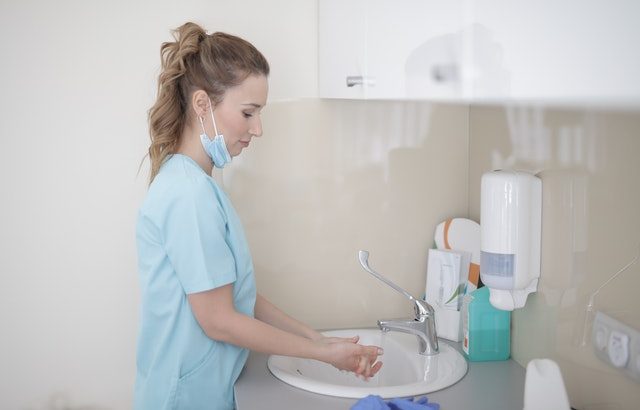Veterinary Nurses: An Introduction to This Veterinary Profession
The veterinary medicine industry encompasses over a dozen different professions. In addition to licensed veterinarians and veterinary technicians, for instance, there are veterinary nurses. Veterinary nurses typically work at the same private clinics as licensed veterinarians and veterinary technicians. Most private clinics have at least one veterinary nurse on their payroll. If you’re thinking about working as a veterinary nurse, though, there are several things you should know about this otherwise common veterinary profession.
What Is a Veterinary Nurse?
A veterinary nurse is a veterinary worker who cares for animals at a private clinic. They are considered paraveterinary workers. Paravetinerary workers are individuals who work in the veterinary medicine industry that perform a variety of procedures, either autonomously or semi-autonomously, related to the diagnosis, treatment and prevention of adverse medical conditions in animals.
Some of the most common types of paraveterinary professions include the following:
- Veterinary nurse
- Veterinary assistant
- Veterinary technician
- Veterinary technologist
Parveterinary workers aren’t full-fledged veterinarians. Some of them may hold a license. Veterinary technicians, for example, are required to obtain a license in order to practice in many states. Nonetheless, paraveterinary workers typically work either alongside or under the supervision of a licensed and full-fledged veterinarian. Veterinary nurses, technicians and other paraveterinary workers essentially help licensed veterinarians with their day-to-day activities.
Duties and Responsibilities of Veterinary Nurses
All veterinary professions come with their own duties and responsibilities — and veterinary nurses are no exception. Among other things, veterinary nurses will often prepare animals for surgery. If an animal needs surgery, a veterinary nurse may restrain the animal, check his or her vitals, take the animal outside and perform other pre-surgical processes to ensure the animal is ready. Some veterinary nurses are able to administer fluids to animals as well. Regardless, most of them will prepare animals for surgery.
Veterinary nurses also care for animals after coming out of surgery. Like us humans, animals must recover from surgical procedures. Some surgical procedures are more invasive than others. Therefore, they require a longer period of recovery. After coming out of surgery, animals are typically treated by a veterinary nurse. A veterinary nurse will monitor the animal’s vitals while helping him or her recover from the procedure.
Veterinary nurses often provide immediate care for animals. If an animal is injured, a veterinary nurse may apply wound dressings. Physical injuries are common in dogs, cats and other companion animals. Whether an animal has a broken bone or a laceration, he or she will likely need immediate care. Veterinary nurses provide this immediate care to injured animals so that they are less likely to experience complications from their respective injury. Of course, these are just a few duties and responsibilities of veterinary nurses. Veterinary nurses fall under the category of paraveterinary workers, so they perform a variety of medical-related procedures for animals.

Advantages of Working as a Veterinary Nurse
Working as a veterinary nurse comes with several benefits. As a veterinary nurse, you’ll have the opportunity to make a positive difference in the lives of animals. From dogs and cats to guinea pigs and parrots, animals rely on humans for medical care. They can’t treat their own illnesses and injuries. By working as a veterinary nurse, you can offer hands-on care for sick and injured animals.
Most private clinics offer perks to all their employees, including their veterinary nurses. Some of these perks consist of health insurance, paid vacation, overtime pay, free training and more.
The barrier for entry to become a veterinary nurse is also lower than that to become a licensed veterinarian. You won’t have to complete a Doctorate of Veterinary Medicine (DVM) program. The completion of DVM program is only a requirement for licensed veterinarians. Because veterinary nurses are paravetinary workers, they aren’t required to complete a DVM program. Some states still have licensing or certification requirements for veterinary nurses, but you won’t have to complete a DVM program.
Disadvantages of Working a Veterinary Nurse
There are a few possible disadvantages to working as a veterinary nurse as well. You may discover that it’s a highly competitive profession, for example. Due to the aforementioned benefits, many people are eager to work as a veterinary nurse. Unfortunately, this can make it difficult to secure a job. You’ll have to present yourself as a more qualified candidate than your counterparts to secure a job as a veterinary nurse.
Working as a veterinary nurse can be stressful at times. As a paraveterinary worker, you’ll be responsible for treating sick and injured animals. This burden is a source of stress for many veterinary nurses. With that said, it shouldn’t stop you from pursuing a job as a veterinary nurse. There are ways to manage work-related stress, and by doing so, your performance will increase while resulting in a higher level of care for the animals that you treat.

